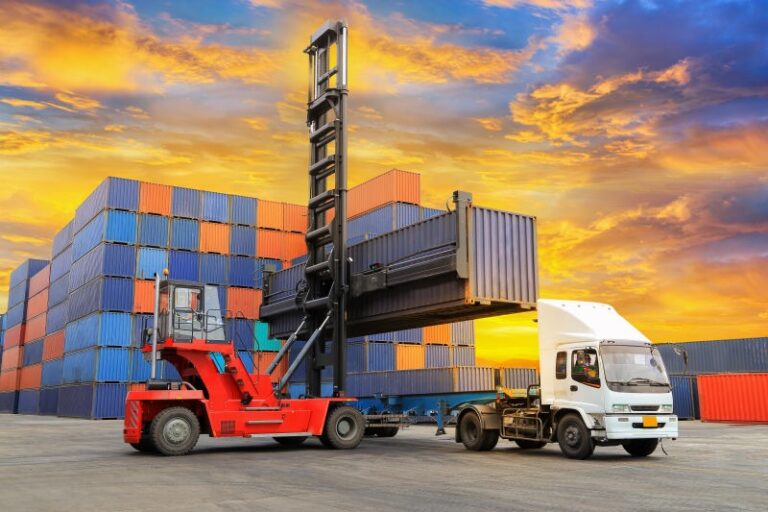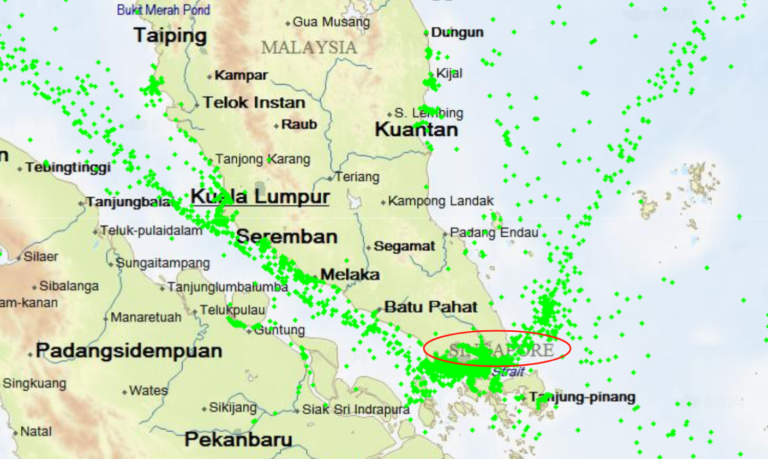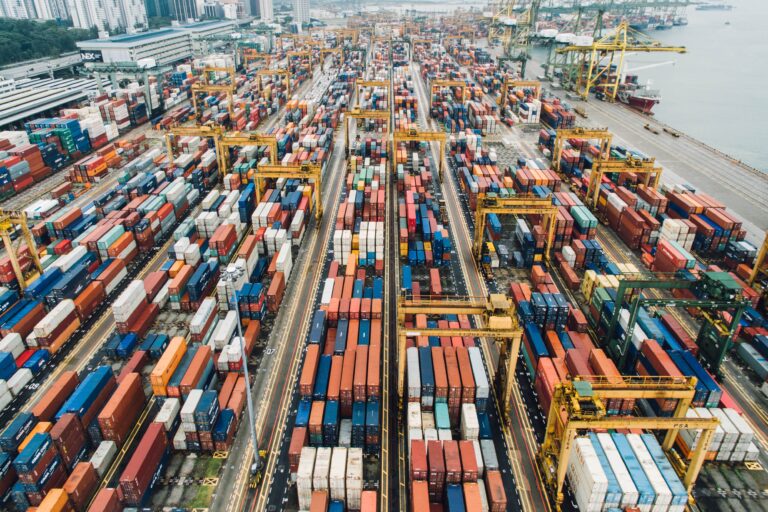Nearly 100 containers were rejected and returned to Albanian ports
Due to protests from environmental activists, around 100 containers suspected of transporting toxic substances will be sent back to Europe. These containers are reported to contain 800 tons of hazardous industrial waste originating from Albania, which was initially planned to be shipped to Thailand. Environmental organizations had previously issued warnings that this waste was being illegally exported to Southeast Asia.
According to Bloomberg tracking data, these containers were loaded onto the vessel Contship Vow in mid-July in Albania. The ship then transported the containers to Trieste, Italy.

Upon arrival, these containers were transferred onto two vessels chartered by Maersk, namely Maersk Campton and Maersk Candor. These ships were transporting the containers to Singapore, where they were to be transferred again onto vessels operated by Mediterranean Shipping Company (MSC) for further transport to Thailand.
The Maersk Campton offloaded its containers in Singapore over the weekend. Initially, the vessel passed by the port but then returned to dock.
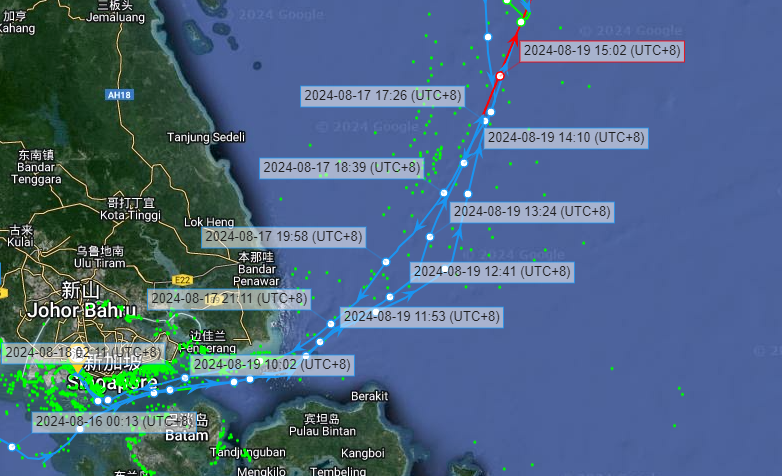
Environmental groups have accused the Maersk Campton of having 40 containers of hazardous dust waste on board. The containers were reportedly transferred to an MSC vessel on Monday (August 18) for shipment back to Italy.
The Maersk Campton has now left the port of Singapore and is heading for Tianjin Xingang.
Maersk stated that it is collaborating with Singaporean authorities and MSC to return the hazardous cargo to Albania. The containers are expected to arrive at the Port of Gioia Tauro in Italy by the end of September.
According to ship data, the Maersk Campton departed from the Port of Tanger Med and was built in 2022. It has a capacity of 15,000 TEU, flies the British flag, and is deployed on the Asia-Mediterranean route by the 2M Alliance (Maersk’s AE12/TP2 service and MSC’s PHOENIX/JAGUAR service).
This route includes calls at major ports in China, such as Tianjin Xingang, Dalian, Ningbo, Shanghai, and Shekou.
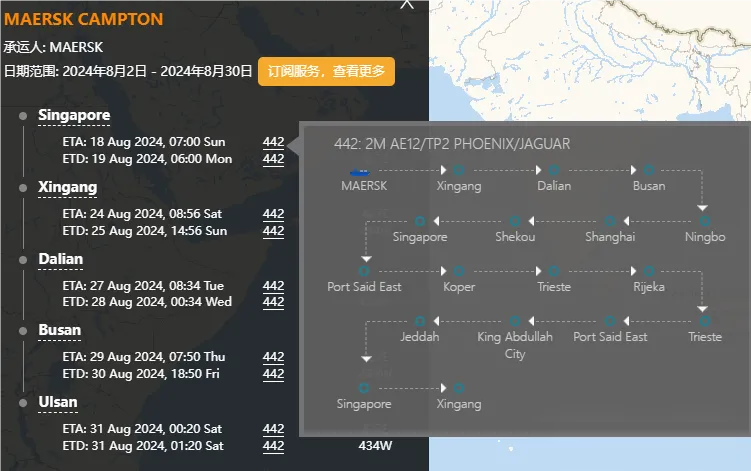
Additionally, 60 containers suspected of carrying waste are currently loaded on the Maersk Candor. This vessel is expected to arrive in Singapore in early September and will also eventually return to Italy.
These containers were originally loaded onto an MSC container ship departing from Albania.
The container ship Maersk Candor, built in 2022 with a capacity of 15,473 TEU, sails under the Liberian flag. Like Maersk Campton, it is also deployed on the Asia-Mediterranean route by the 2M Alliance (Maersk’s AE12/TP2 service, MSC’s PHOENIX/JAGUAR service).
Last week, Maersk stated to the media that the company would report the situation concerning these containers to the relevant authorities and would cooperate as needed. Maersk’s spokesperson, Summer Shi, mentioned that these containers, which originated from Albania, were booked by another shipping company.
Maersk reported, “These containers were not declared to contain hazardous waste. If they had been declared as containing hazardous waste, Maersk would have refused to transport them.“
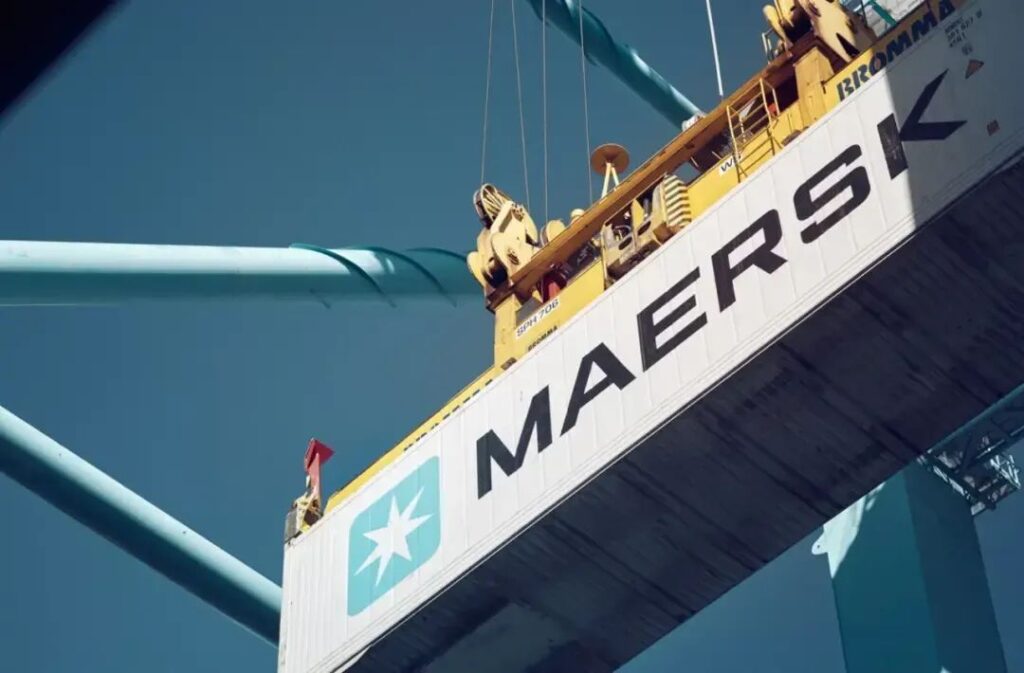
Earlier this month, the Basel Action Network (BAN), a charitable non-governmental organization dedicated to combating the export of toxic waste from industrialized societies to developing countries, alerted Thai authorities about a shipment of containers potentially containing hazardous electric arc furnace dust that was en route to Thai ports.
Since then, Thai officials have been working to halt the transportation of these goods. The containers, which were loaded at the Port of Durrës in Albania in July, have triggered concern in multiple countries throughout their journey, and they are scheduled to arrive in Thailand later this month.
According to a report by the Bangkok Post, the Port Authority of Thailand has stated that they will not accept the waste. Thai officials have informed their counterparts in Singapore that they will not allow the shipment to be received.
Thailand’s Department of Industrial Works, which oversees international waste management, indicated in an email that no government agency had been notified or given consent for the shipment. The department also stated, “We are currently coordinating and monitoring to prevent this illegal trafficking.”
Albanian Ministry of Tourism and Environment spokesperson Erjon Uka stated that Albanian authorities had not approved the export of the so-called hazardous waste. He mentioned that Albanian law enforcement is collaborating with the European Union’s Anti-Fraud Office (OLAF) to investigate “the suspected case of waste being transported from Europe to Southeast Asia and all related logistical aspects.”
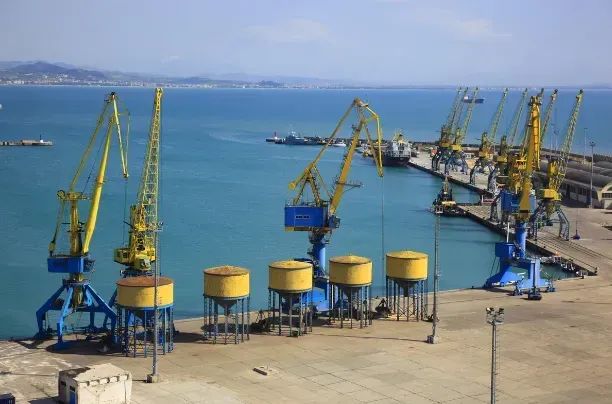
Uka explained that the waste in question is suspected to have originated from a multinational company operating near a metallurgical plant in Elbasan, close to Durrës. The 800 tons of waste consist of toxic steelmaking dust collected from pollution control filters. This dust, which is produced during the recycling of steel, contains toxic metal oxides that require specialized treatment.
Thailand and other Southeast Asian countries have experienced a significant influx of waste from developed nations, including dirty plastics, industrial waste, and electronic waste, some of which may contain harmful toxins. Under the United Nations’ Basel Convention, the transport of waste to other countries requires the consent of the receiving country.
It was also noted that the European Union has tightened regulations on the transport of toxic waste. Under new rules set to take effect in 2027, the export of EU waste to non-OECD countries will only be permitted if the European Commission has notified these countries, they have consented to receive the waste, and have demonstrated the capacity to manage it in a sustainable manner.


